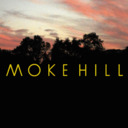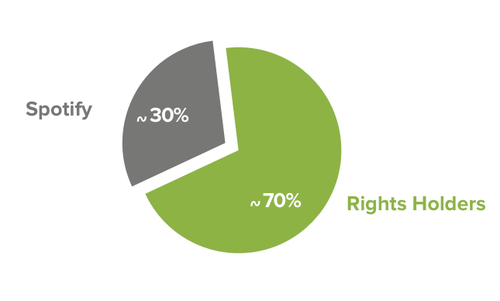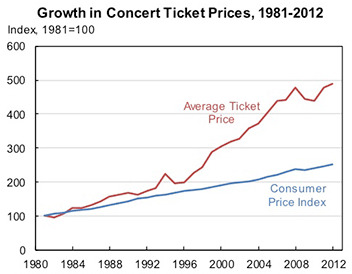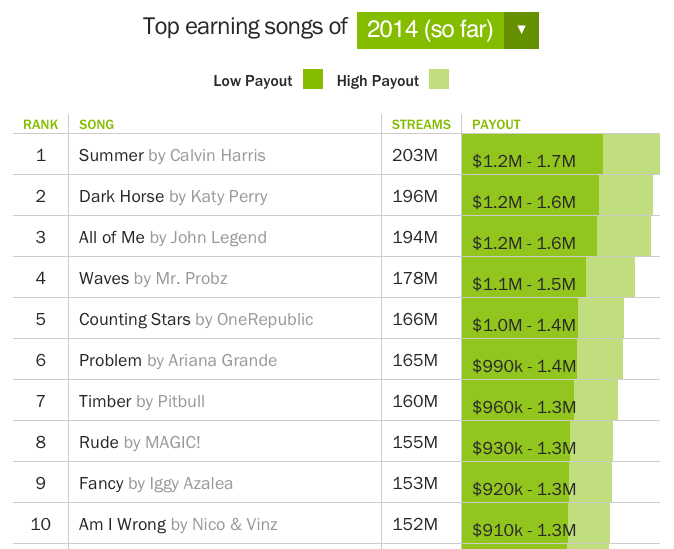Thoughts On Music Streaming: Taylor Swift, Aloe Blacc and Spotify
Spotify has been the topic of much debate this week, thanks to Taylor Swift’s decision to pull her catalog and Aloe Blacc’s piece in Wired entitled “Streaming Services Need to Pay Songwriters Fairly.”
Given my somewhat unique perspective on the music industry (having worked at an indie label and management company and now as an artist), I decided to see what I could learn about streaming payments using the data available to me – Moke Hill Spotify numbers.
When Drew and I started Moke Hill a year and a half ago, we began by writing a bunch of songs, convinced the rest of the guys to join us, then put out an EP at the end of 2013. We’ve spent nothing on marketing or PR, and have no label or management support. Our plan was essentially to lay the foundation for the band with the EP, then finish a full length that we could use to find label, management and booking partners.
At the beginning of 2014, the song “Detroit” started getting a fair number of plays on Spotify, and has been streamed 299,431 times as of today.
The numbers reported to date for Detroit are below (the payments haven’t caught up with the actual streams yet):
204,250 Spotify streams = $910.43
This means we’re getting paid ~0.4457 cents for every Spotify stream. Since we didn’t/don’t have a label, we used CD Baby to distribute the EP to the digital services and never pressed any physical copies. CD Baby takes 15% off the top, so Spotify is actually paying out more than we’re seeing (~0.5244 cents/stream).
Obviously the math won’t be perfect (more detailed explanation here), but applying our per stream numbers to the Avicii song that Aloe Blacc references (“Wake Me Up”) tells me that Spotify will pay out in the neighborhood of $1,563,792 (our cents per stream x 298,203,998 current plays / .85, since CDBaby is taking 15%) on the streams for that song, to date. One song, on one still relatively small streaming service.
That doesn’t sound so bad, right? It might even make you wonder why Aloe Blacc is upset with Spotify. The answer is complex, but the revenue generated from Spotify streams is divided much the same way it is on iTunes, and CD sales before that.
In the case of Spotify, the revenue breakdown looks like this:

So Spotify keeps ~30% of the gross revenue, which they use to pay employees and keep the service running. ~60% is paid out to the owner of the masters (usually labels but in our case, us, through CD Baby), and the remaining ~10% is paid to the owner of the publishing.
Here is the problem with most of the arguments against Spotify; we don’t know the terms of the deals bands have signed with their labels. We don’t know if Aloe Blacc has a publishing deal. Did he get an advance for his publishing deal? What is his split on “Wake Me Up?” Without any of this information, we can’t tell exactly what is happening to the money after Spotify writes the check. All we know is - the owner of the publishing on that song should be seeing upwards of $223,000 in Spotify royalties. It isn’t Spotify’s fault that the money isn’t making it’s way to Aloe Blacc.
This makes me wonder - why is Spotify in the crosshairs because the people they pay aren’t paying the artists/writers? Did writers march on Best Buy headquarters when they felt they weren’t getting a big enough piece of CD sales? Aloe Blacc is pointing the finger at streaming services for what he feels is a raw deal, when the reality is that Spotify simply adheres to the model that has been in place for years, and therefore pays roughly the same percentage of revenue to writers as CDs or iTunes.
As for Taylor Swift, we don’t know exactly why she decided to pull her catalog, because she hasn’t explained what motivated her to make the move. However, this morning her label president (Scott Borchetta) made this comment:
“If [a] fan went and purchased the record, CD, iTunes, wherever, and then their friends go, ‘why did you pay for it? It’s free on Spotify,’ we’re being completely disrespectful to that superfan.”
I’m not sure I follow his logic, but I do know that the music is not “free” on Spotify, since many users (myself included) are paying for the service, and the rest are paying in the form of ads. Regardless, Taylor Swift and her label have made a move they think is best for her at this moment in her career, and it’s hard to fault her for that.
I have nothing but respect for Aloe Blacc and Taylor Swift and any musician trying to do this for a living, but I hope artists will pause and realize that misplaced blame and oversimplification of the issues could set us back, again. Physical album sales are never coming back in any meaningful way, and the alternative to streaming is piracy. Imagine if Spotify were embraced by notable musicians and grew to 10 times the size it is today; “Wake Me Up” could have generated upwards of 15 million dollars. One song, on one service. Something Aloe Blacc and his fellow songwriters likely only spent a few days writing.
As for Moke Hill, we’ve spent next to nothing to get our songs on Spotify and it has exposed us to tens of thousands of people that never would have heard our music otherwise. Spotify is not only paying us, but building our fan base while paying us - which will eventually make touring easier (and help us support ourselves with the income that comes with it).
I worry that if more big acts follow Taylor Swift and Aloe Blacc’s lead, bands like ours could lose an important outlet to have their music heard. And I can say definitively that were it not for Spotify, I would never have discovered many of the artists I consider favorites today.
~ben berry
mokehillmusic.com




